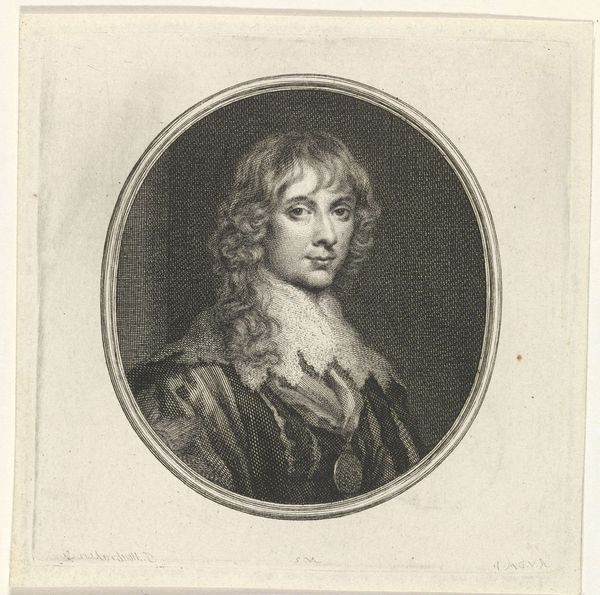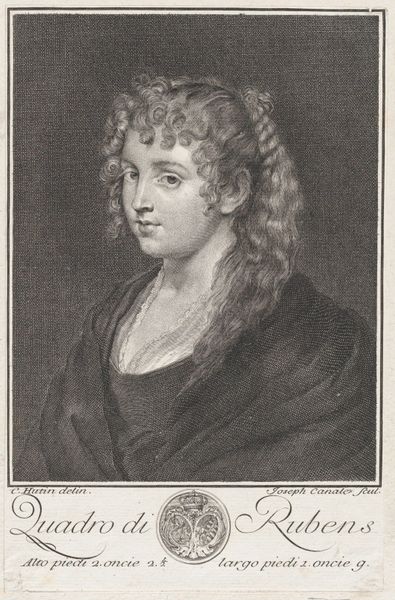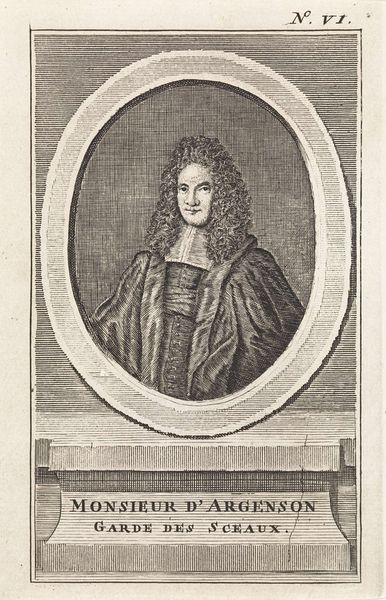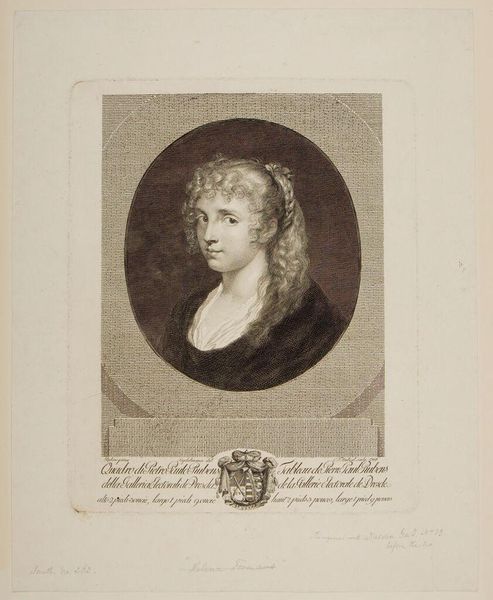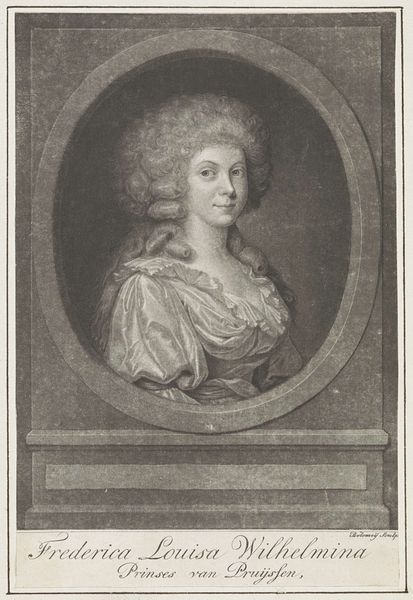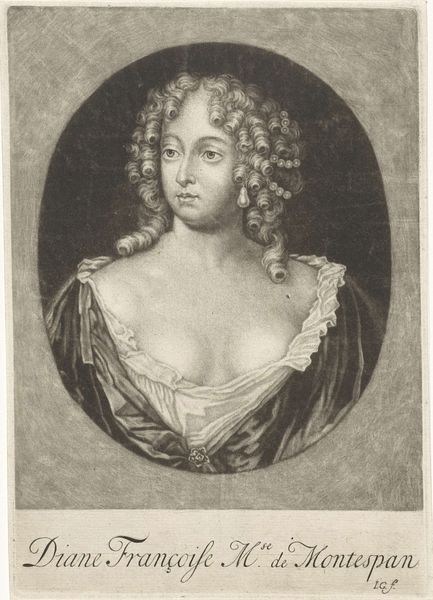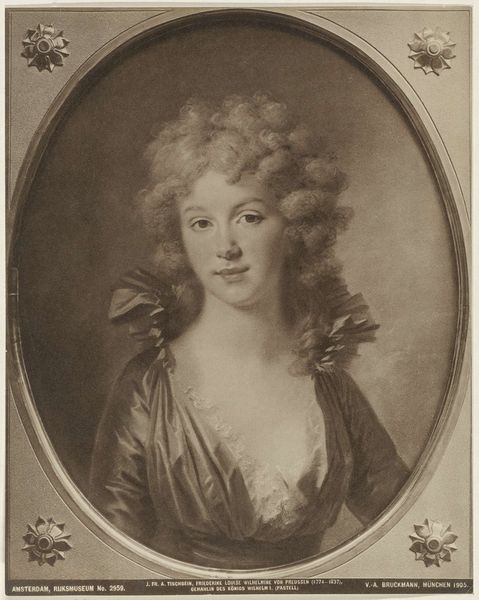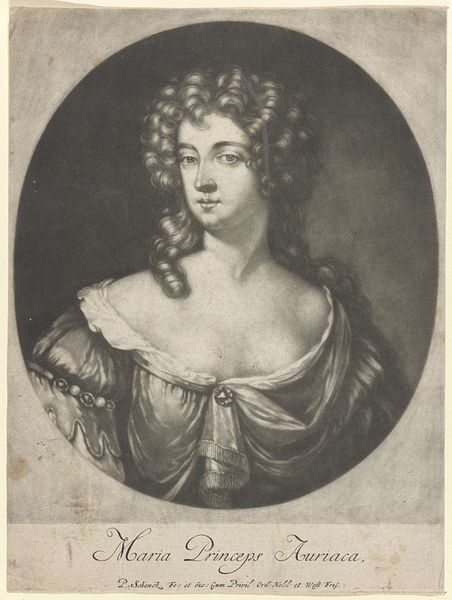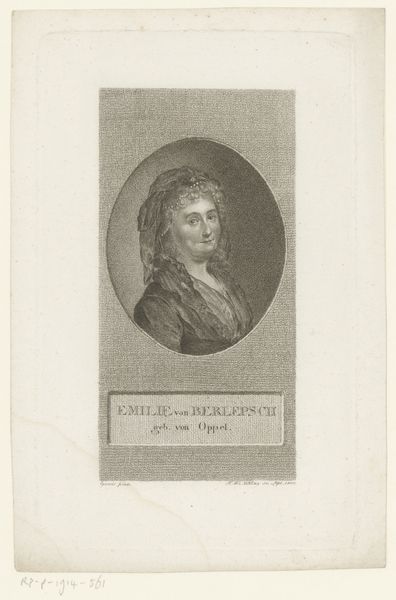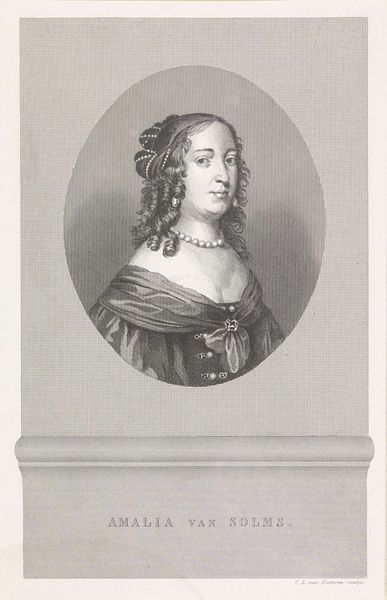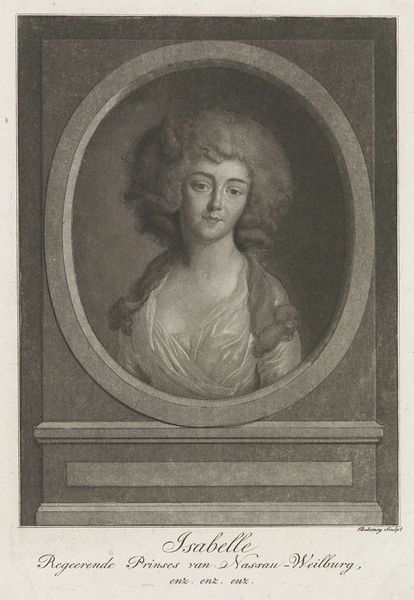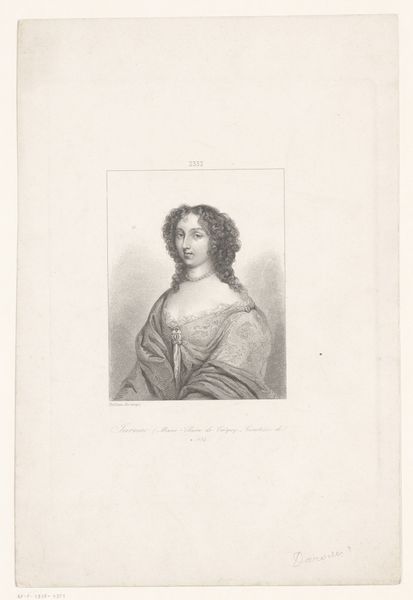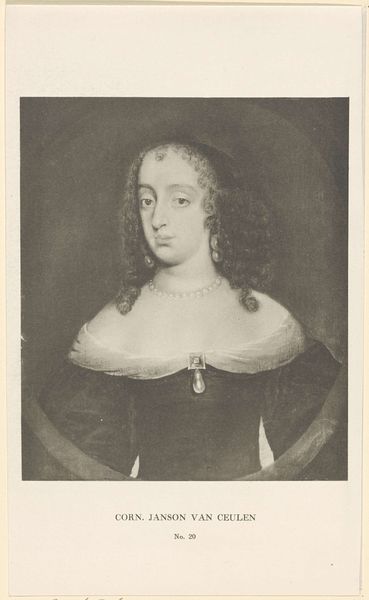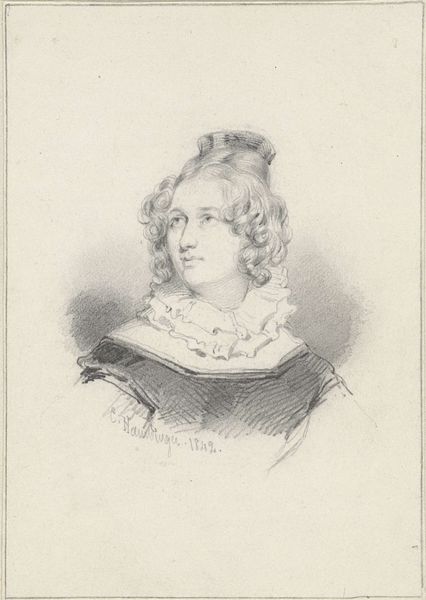
Dimensions: height 298 mm, width 215 mm
Copyright: Rijks Museum: Open Domain
This is Lambertus Antonius Claessens' portrait of Isabella Brant, made with engraving, a printmaking technique. The image emerges from a painstaking process: the artist would have used a tool called a burin to carve lines directly into a metal plate. Look closely, and you can see how the network of finely incised lines create subtle tonal gradations, giving form to Brant's face and drapery. The texture is smooth, almost velvety, a direct result of the controlled pressure and angle of the burin. This wasn't just about replication; printmaking in this period was a valuable form of artistic production in its own right. Prints like this one allowed images to circulate widely, contributing to a growing culture of visual literacy and consumption, but also employing specialist engravers like Claessens. By focusing on the process, we can appreciate the skill involved, and how printmaking blurred the lines between craft and art.
Comments
No comments
Be the first to comment and join the conversation on the ultimate creative platform.
